Simone Finkmann
Simone Finkmann studied Classics, Medieval Latin and English Philology at the universities of Münster and Oxford (Corpus Christi College). After obtaining her doctorate from the University of Oxford (Christ Church) and teaching for several colleges and the Classics Faculty of the University, she was appointed Assistant Dean and Lecturer for Classical Languages and Literature at Somerville College and continued to work for the Classics Faculty and Oxford University Press. She currently holds the position of Assistant Professor of Classics at the University of Rostock (Heinrich Schliemann-Institute of Ancient Studies).
Simone Finkmann’s main research interests are narratology, discourse analysis, intertextuality and gender studies in ancient and medieval epic poetry and Latin poetry of the Late Republic and Early Empire.
Christiane Reitz
Christiane Reitz studied Classics and Comparative Linguistics at the universities of Bonn and Heidelberg. After working as Assistant Professor and Lecturer at the University of Mannheim as well as Deputy Chair at the universities of Gießen and Heidelberg, Christiane Reitz became Chair of Classics at the University of Rostock in 2000, where she was active until 2019. She has continuously worked on epic poetry and its individual structural components.
Besides Roman and Greek epic poetry her main research interests are reception and transmission history of ancient literature, as well as authors of specialist literature. She is one of the editors of the series "Litora Classica" (VML-Verlag) and "Hypomnemata" (Vandenhoeck und Ruprecht) and has initiated and edited several companions on epic poetry.
From 2009 until 2018 Christiane Reitz has been a member of the Selection Committee of the Alexander von Humboldt Foundation, from 2007 until 2009 she was Chair and from 2009 until 2011 Vice Chair of the Mommsen-Gesellschaft and from 2014 until 2019 she has been Vice President of the FIEC.
Andreas Abele
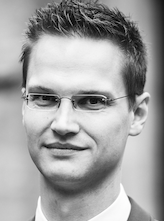
Andreas Abele studied Latin and History at the University of Tübingen and graduated in 2012 (First State Examination). Since then he has worked as a Research Assistant at the Department of Classics at the University of Tübingen where he also received his PhD with a thesis on the reception of emperor Julian the Apostate on the Jesuit stage (Jeremias Drexel SJ: Iulianus Apostata Tragoedia. Edition, Übersetzung und Kommentar. Berlin/Boston 2018.).
His other main research interests lie in the field of late antique Latin epistolography (esp. Symmachus) and the narrativity of late antique and early Medieval Latin hagiographies.
He is the author of "Latein und/oder Deutsch? Zur Wahl der Sprache im geistlichen Spiel des Reformations- und konfessionellen Zeitalters", in: A. Gil / R. Kirstein (Eds.), Wissenstransfer und Translation. Zur Breite und Tiefe des Übersetzungsbegriffs, St. Ingbert 2015, 59–83.
Annemarie Ambühl

Annemarie Ambühl studied Classics and Ancient History at the University of Basel and the University of Michigan. She received her PhD from the University of Basel in 2002 with a thesis on innovative aspects in the portrayal of children and young heroes in Callimachus.
She subsequently joined Christine Walde’s Lucan project at the University of Basel. She was awarded a research grant to spend a year as a visiting scholar at the University of Groningen. After research and teaching appointments at the universities of Groningen, Gießen, Cologne and Leiden Annemarie Ambühl completed her habilitation treatise on the reception of Greek literature in Lucan’s civil war epic at the University of Mainz in 2012, where she has been a lecturer since.
Her main research interests are Greek and Latin epic and tragedy as well as Hellenistic poetry and its reception.
Antony Augoustakis
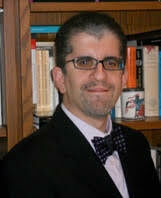
Antony Augoustakis is Professor of Classics at the University of Illinois, Urbana-Champaign, USA.
His main research interests include Latin imperial epic, Roman comedy and historiography, women in antiquity, classical reception, and gender theory.
He is the author of Motherhood and the Other: Fashioning Female Power in Flavian Epic (2010) and Statius, Thebaid 8 (2016). He is the editor of the Brill Companion to Silius Italicus (2010), Ritual and Religion in Flavian Epic (2013), Flavian Poetry and its Greek Past (Brill 2014), Oxford Readings in Flavian Epic (2016), and co-editor of the Blackwell Companion to Terence (2013). Antony Augoustakis is also the editor of the journal Illinois Classical Studies.
He is currently working on several major research projects: a monograph on death and ritual in Flavian Epic, a commentary on Book 3 of Silius Italicus' Punica (together with Joy Littlewood), a commentary on Pseudo-Seneca's Hercules Oetaeus and four companions: STARZ Spartacus: Reimagining an Icon on Screen (with Monica Cyrino), Fides in Latin Literature (with Claire Stocks and Emma Buckley), New Heroes on Screen (with Stacie Raucci) and Flavian Campania (with Joy Littlewood).
Silvio Bär

Silvio Bär studied in Zurich and Oxford (Classics, musicology, English philology) and has been Professor of ancient Greek at the University of Oslo since 2014.
His research areas and interests include epic, tragedy, poetry, the novel, mythography, rhetoric, the Second Sophistic, intertextuality, narratology, and the reception of antiquity in English literature and popular culture.
Bär is considered a leading expert on Quintus of Smyrna and has published a partial commentary on Posthomerica Book 1 (Quintus Smyrnaeus. »Posthomerica« 1: Die Wiedergeburt des Epos aus dem Geiste der Amazonomachie. Mit einem Kommentar zu den Versen 1–219, 2009 [PhD 2008]). He has co-edited two collected volumes (Quintus Smyrnaeus: Transforming Homer in Second Sophistic Epic, 2007; Brill’s Companion to Greek and Latin Epyllion and Its Reception, 2012).
Currently, he is, inter alia, working on a research report on Quintus of Smyrna (for the journal Lustrum) and writing a monograph on Heracles (working title: Heracles in Greek and Latin Hexameter Poetry: Studies on the Narrativity and Poeticity of a Hero).
Egbert Bakker
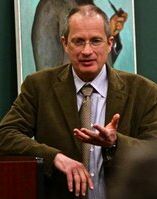
Egbert Bakker (PhD Leiden, 1988) is Professor of Classics at the University of Yale. He has taught at Yale since 2004. Before he held positions at the University of Texas at Austin and at Université de Montréal. He also taught at the University of Virginia and Leiden University.
Within the field of Greek language and literature he is interested among other things in the linguistic side of poetic problems and on ways of literary communication in Archaic and Classical Greek literature.
Egbert Bakker has written on oral poetry, poetic performance, the linguistic articulation of narrative, and the differences between speaking and writing. His recent books include Pointing at the Past: From Formula to Performance in Homeric Poetics (Harvard 2005); A Companion to the Ancient Greek Language (Malden 2010); and The Meaning of Meat and the Structure of the Odyssey (Cambridge 2013).
Currently his main research project is a commentary of Book 9 of the Odyssey for the “Green and Yellow” series Greek and Roman Classics (Cambridge).
Martin Bažil
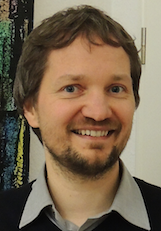
Martin Bažil is the Assistant Professor for Latin Literature at the Institute of Greek and Latin Studies at the Charles University in Prague. Following his studies at Prague and Heidelberg (1991-1998), he completed his DPhil degree at the Charles University and the Université Paris Sorbonne (Paris IV) in 2006 with a thesis entitled Centones Christiani. Métamorphoses d’une forme intertextuelle dans la poésie latine chrétienne de l’Antiquité tardive, which was subsequently published in the Collection des Études Augustiniennes in 2009.
From 2008 until 2010 Martin Bažil was the recipient of a postdoctoral grant from the Czech Science Foundation for his project "Cento - transformation of the intertextual genre and poetic technique in the late Roman literature". He visited the FU Berlin and the LMU Munich as Alexander von Humboldt scholar from 2013 until 2014 and worked as Lecturer at the University of Rostock from 2015 until 2016. Martin Bažil’s research interests are late antique poetry, especially biblical epic and the cento, intertextuality, the translation of ancient texts, and the concept of ‚text’ in Roman literature.
At the moment he is working on a monograph entitled “Textus. The Origin of Concept of Text in Late Roman Literature”. Among Bažil’s latest publications on ancient epic are "La mémoire de la citation. Teneur littérale et évocation implicite dans les centons virgiliens de l’Antiquité tardive", in: D. Vallat (ed.), Varium et mutabile. Mémoires et métamorphoses du centon dans l’Antiquité, Saint-Étienne 2017, 34-44 and "Le Cento nuptialis d’Ausone et Virgile, otage d’un combat herméneutique", in: É. Wolff (ed.), Ausone 2015 – Bilan et perspectives, Paris(in press); "Proba jako historička. Starozákonní dějiny a čtyři věky lidstva v Cento Probae", ZJKF – Auriga 2015, 57/1, 90-107.
Deborah Beck
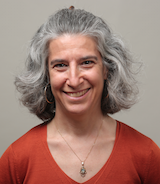
Deborah Beck (PhD Harvard University, 1997) is Associate Professor in the Department of Classics at the University of Texas at Austin, where she has taught since 2009. She has been Plumer Visiting Research Fellow at St. Anne’s College, University of Oxford, Homeric Studies Fellow at the Center for Hellenic Studies, and has won two grants from the National Endowment for the Humanities. She has also worked at Rice University, Colgate University, the Pennsylvania State University, and Swarthmore College.
Her research interests in classical epic include formulas and oral aesthetics in Homeric epic, speech and speech representation, epic similes, and cognitive theories of reading and interpretation.
She is the author of two books on Homeric poetry: Homeric Conversation (Harvard University Press, 2005) and Speech Presentation in Homeric Epic (University of Texas Press, 2012) with companion database (http://www.laits.utexas.edu/DeborahBeck/home). Recent articles include "Emotional and Thematic Meanings in a Repeating Homeric Motif: A Case Study" (forthcoming in Journal of Hellenic Studies), "Music, Craft, and Technology in the Similes in Vergil’s Aeneid" (forthcoming in Greek and Roman Musical Studies), and "Expressive Narration in Apollonius’ Argonautica", Syllecta Classica 25 (2014). She is now at work on a book about epic similes in Iliad, the Odyssey, the Argonautica, the Aeneid, and the Metamorphoses.
Torben Behm

Torben Behm studied Latin and Mathematics at the University of Rostock and the Université de Nantes (France) from 2008 until 2014. During his graduate studies he was funded by the German National Merit Foundation (Studienstiftung des dt. Volkes).
Torben Behm graduated in 2014 (First State Examination) with a thesis on “Ovid’s letter to Tuticanus (Pont. 4.12) – Commentary and Interpretation”.
In 2015, he worked as a lecturer for Latin at the Language Centre of the University of Rostock.
His main research interests are Ovid and ancient epic poetry. The title of his doctoral project, which is supported by the German National Merit Foundation, is “The City as Setting and Literary Landscape in Ovid’s Metamorphoses”.
Anja Bettenworth
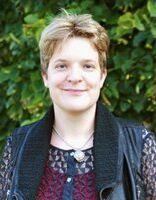
Anja Bettenworth is Professor of Classics at the University of Cologne.
She studied Classics, History, and German at the universities of Münster and Venice. In 2005 she spent a year at the University of Michigan as Feodor Lynen Fellow of the Alexander von Humboldt Foundation.
From 2008 until 2011 Anja Bettenworth was a member and in 2011 acted as vice representative of the ‘Young Researchers’ program of the North Rhine-Westphalian Academy of Sciences and Art in Düsseldorf.
Her current research projects include the reception of antiquity in the cinema and in contemporary North African literature, a project on the narrative technique of Curtius Rufus' Historiae Alexandri Magni, inscriptions in Roman elegy, as well as banquet scenes in Late Antique Christian epic poetry (as part of the international research collaboration "Sacred Meal, Communal Meal, Table Fellowship, and the Eucharist: Late Antiquity, Early Judaism, and Early Christianity“ of the universities of Oslo, Uppsala, Kristiansand and Kiel), and a new publication on the Argonautica: "The Gods in Valerius Flaccus", in: J. Murray and C. Schroeder (edd.): The Cambridge Companion to Apollonius Rhodius (forthcoming).
Thomas Biggs

Thomas Biggs (PhD Yale) is an Assistant Professor of Classics at the University of Georgia.
His main research interests are Roman literature and culture, especially the genres of ancient epic and historiography as well as the era of the Punic Wars.
Thomas Biggs is currently working on a monograph about Naevius’ Bellum Punicum. He is also co-editing (together with Jessica Blum) a new compendium on epic poetry entitled Home and Away: The Epic Journey in Greek and Roman Literature.
His recent and forthcoming publications on topics ranging from Livy's History of Rome and Vergil’s Eclogae to Carthage and Rome in the culture of Republican Rome can be found in journals such as Classical Philology, Classical Journal, and American Journal of Philology.
Gregor Bitto

Gregor Bitto studied Latin and Greek at the Universities of Rostock and Oxford. His doctoral dissertation analyzing Horace’s reception of Hellenistic scholarship on Pindar was published in 2012.
After completing his second state examination (Zweites Staatsexamen) in Hamburg, Gregor Bitto became an Assistant Professor in Classics at the Catholic-University of Eichstätt-Ingolstadt.
In 2015, Gregor Bitto received the venia legendi for Classics with a habilitation treatise about Statius' Achilleid.
He is currently working on self-fashioning in Seneca’s philosophical works.
Karen Blaschka

Karen Blaschka studied Latin and History (First State Examination - Staatsexamen Lehramt) at the University of Potsdam as well as Greek at the Humboldt-University of Berlinand at the University of Potsdam.
After working as a student research assistant at both universities in Classics and Educational Science she was awarded a doctoral scholarship from the Studienstiftung des deutschen Volkes. Karen Blaschka has been working at the University of Potsdam as Research Assistant since 2011. She successfully completed her DPhil course in 2013 with a doctoral thesis on Lucan's Civil War (published as Fiktion im Historischen. Die Bedeutung der Bildsprache Lucans für die Konzeption der Charaktere im Bellum Civile. Litora Classica 8. Rahden/Westf. 2015).
Karen Blaschka's main research interests are figurative language, mainly in ancient epic poetry, but also in prose works and Latin historiography.
Jessica Blum
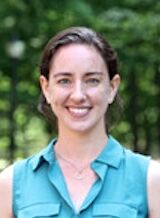
Jessica Blum is an Assistant Professor of Classical Studies at the University of San Francisco. She received her PhD from Yale University, and her BA from Trinity College Dublin.
Her main research interests are imperial Latin poetry and the epic tradition. Her current book project examines the interaction of exemplarity and genre in Valerius Flaccus’ Argonautica, with a particular focus on the character of Hercules.
Jessica Blum is also co-editing (together with Thomas Biggs) a new volume on the epic journey entitled Home and Away: The Epic Journey in Greek and Roman Literature. Her current and forthcoming publications focus on the Argonautica and Ovid’s Heroides, bull similes in the Argonautica, and on generic interactions between elegy and epic.
T.J. Bolt
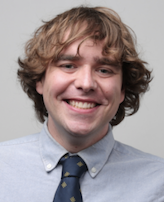
T.J. Bolt is a Ph.D. candidate in Classics at the University of Texas at Austin. He received his M.Phil. from the University of Oxford in 2014 and his B.A. from Lafayette College in 2012.
His main research interests include Flavian epic poetry, Senecan tragedy, ancient and modern conceptions of genre, and stylistic register. He is currently writing his dissertation on the literary uses and aesthetic effects of hyperbole in Statius.
He is involved with the Quantitative Criticism Lab, based at the University of Texas at Austin, where he is exploring the intersection of literary criticism and digital analysis. From 2017-2020, he is a Mellon Engaged Scholar Initiative Fellow.
Abigail Buglass
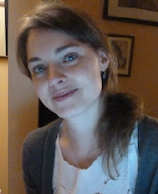
Abigail Buglass studied Classics at Edinburgh for her undergraduate and master's degrees, and later Trinity College, Oxford, for her doctorate. Her thesis explores the didactic and rhetorical function of the frequent and often extended verbal repetitions which can be seen in Lucretius' De Rerum Natura. Towards the end of her doctoral work she spent several months in Munich as a visiting scholar at Ludwig-Maximilians University. In 2014 she also spent time as a visitor at Columbia University, New York.
In January Abigail Buglass will take up a Postdoctoral Fellowship at the Institute for Advanced Studies in the Humanities at Edinburgh to work on her next project, which explores the late antique reception of Lucretius' De Rerum Natura. Her main research interests are Latin didactic poetry, especially Lucretius, Lucretius' later reception, and epic poetry.
Kristoffel Demoen

Kristoffel Demoen (PhD 1993) is Professor of Greek Literature at Ghent University.
His research interests are primarily related to the transmission, transformation and adaptation of the ancient literary and cultural tradition, especially in Late Antiquity and the Byzantine period.
Kristoffel Demoen has written and edited books on Gregory of Nazianzus (Brepols, 1996), Philostratus' Apollonius (Brill, 2009), 11th-century Byzantine poetry (Ashgate, 2012) and Greek and Latin biography (CUP, 2016).
His current project is an edition and commentary of the 10th-century Paradeisos, a collection of 99 classicizing monastic epigrams.
He is the director of the Database of Byzantine Book Epigrams (www.dbbe.ugent.be), co-editor of L’Antiquité Classique, and president of the Belgian Society for Byzantine Studies.
Martin Dinter

Martin T. Dinter, PhD (Cam) is Lecturer in Latin Literature and Language at King’s College London.
He is author of Anatomizing Civil War – Studies in Lucan’s Epic Technique (Michigan, 2012) as well as co-editor of the A Companion to the Neronian Age (Malden, 2013) and Reading Roman Declamation - The Declamations ascribed to Quintilian (Berlin 2016). Martin Dinter has published articles on Virgil, Horace, Lucan, Seneca and Flavian epic.
Thanks to a three year grant by FAPESP (Sao Paulo, 2012-15) he is currently preparing a book-length study on Cato the Elder as well as editing the Cambridge Companion to Roman Comedy (CUP) and co–editing volumes on Seneca the Elder (OUP) and Calpurnius Flaccus (de Gruyter).
Giulia Fanti
Giulia Fanti studied Classics at the University of Pavia and obtained her PhD from the University of Cambridge in 2017 with a dissertation on Roman didactic poetry that focuses on Lucretius’ De rerum natura, Manilius’ Astronomica, and the Aetna, and comprises an analysis of the linguistic features that define the poet’s authority and his engagement with the envisaged audience.
She is now a stipendiary lecturer in Classics at St John’s College and an instructor of Ancient Greek and Latin at the Classics Faculty of the University of Oxford.
Her main research interests are didactic poetry, Latin philosophical texts, and Late-Republican literature, especially Cicero’s poetry. Giulia Fanti has published on Lucretius, Grattius and Cicero.
Joseph Farrell

Joseph Farrell is Professor of Classical Studies and Mark K. and Esther W. Watkins Professor in the Humanities at the University of Pennsylvania, where he has taught since 1984.
He is the author of Vergil’s Georgics and the Traditions of Ancient Epic (New York 1991), Latin Language and Latin Culture from Ancient to Modern Times (Cambridge 2001) and editor of The Vergilian Century (= Vergilius 47, 2001), A Companion to Vergil’s Aeneid and its Tradition (with Michael C. J. Putnam; Malden, MA 2010), and Augustan Poetry and the Roman Republic (with D. P. Nelis; Oxford 2013).
Joseph Farrell is currently working on a new monograph with the title Juno's Aeneid - Metapoetics, Narrativity, Dissent (Princeton University Press).
Simone Finkmann
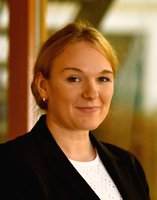
Simone Finkmann studied Classics, Medieval Latin and English Philology at the universities of Münster and Oxford (Corpus Christi College). After obtaining her doctorate from the University of Oxford (Christ Church) and teaching for several colleges and the Classics Faculty of the University, she was appointed Assistant Dean and Lecturer for Classical Languages and Literature at Somerville College and continued to work for the Classics Faculty and Oxford University Press. In October 2015 Simone Finkmann joined the University of Rostock where she currently holds the position of Assistant Professor of Classics at the Heinrich Schliemann-Institute of Ancient Studies. She is the co-founder of the Epic Poetry Network (EPN) and is currently developing a new e-learning programme for Vergil's Aeneid.
Simone Finkmann’s main research interests are narratology, discourse analysis, intertextuality and gender studies in ancient and medieval epic poetry and Latin poetry of the Late Republic and Early Empire.
Stephen Froedge
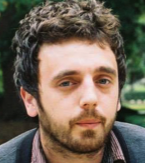
Stephen Froedge studied Classics at the University of California, San Diego (B.A. 2011), the University of Kansas, Lawrence (M.A. 2013), and the University of Illinois at Urbana Champaign, USA (M.A. 2015).
He is currently undertaking his PhD research in Classics under the supervision of Antony Augoustakis at the University of Illinois, Urbana-Champaign.
His research interests include Latin imperial epic, the novel, classical reception in television, and monsters.
Marco Fucecchi

Marco Fucecchi is Associate Professor of Latin Language and Literature at the University of Udine. He specializes in literature of the Augustan Age (Virgil, Ovid) and the Early Empire, especially focussing on Flavian epic poetry.
In this field he has already published several papers, in particular on Silius’ Punica, as well as monographs such as his commentary on Valerius Flaccus’ Argonautica Book VI in two volumes. While still working on these topics, he is currently preparing a commentary to Virgil’s Aeneid Book III and a study on Ovid’s elegy from exile as a prototype of ’eccentric’ poetry.
Other papers about the presence of the civil war theme in Flavian epic and the role of divine personifications in Claudian are forthcoming. In the last two years he has been invited to deliver talks and papers at international conferences in Italy (Milan, Udine, Palermo, Rome, Naples) and abroad (Dublin, Edinburgh, Bordeaux, Ljubljiana, Strasbourg, Genève, Nijmegen, Rostock, Lille).
Andreas Fuchs

Andreas Fuchs studied Classics and German Philology at the Universities of Mannheim and Oxford (Corpus Christi College). After receiving his doctorate from the University of Mannheim with a thesis on the modern term and the ancient concept of dramatic suspense (Stuttgart 2000), he completed the Second State Examination in 2001.
He has been a Research Associate at the Chair of Latin Studies (Christiane Reitz) at the University of Rostock since 2001.
His current research interests include Cicero's translations and the reception of ancient literature in Germany, especially in the 18th and 19th century. Among his recent publications are (together with Christiane Reitz) Vertere. Zu Theorie und Praxis des Übersetzens in der Antike. In: Albrecht Buschmann (ed.). Gutes Übersetzen. Neue Perspektiven für Theorie und Praxis des Literaturübersetzens. Berlin et al. 2015, 35-65 and (together with Julia Frick) Christian Gottlob Heynes Übersetzung von Charitons Kallirhoe (1753). In: Sylvia Brockstieger et. al. (eds.). Zwischen Poetik und Philologie. Übersetzungen und Übertragungen antiker Romane im 18. Jahrhundert (forthcoming).
Ursula Gärtner
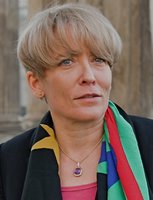
Ursula Gärtner has been Professor for Classics at the University of Potsdam since 2002. From March 2016 onwards she deputizes for the Professor of Latin at the University of Graz.
She studied Latin, Greek, Medieval Latin and Hebrew at the universities of Heidelberg, Freiburg, Pittsburgh and Basel, gained her PhD in Freiburg, and completed her habilitation treatise in Leipzig. Her current research focus is on ancient epic and ancient fable.
Ursula Gärtner's main publications are Gehalt und Funktion der Gleichnisse bei Valerius Flaccus (Stuttgart 1994); Zum Lob Italiens in der griechischen Literatur (Stuttgart 2002, 7-57); Quintus Smyrnaeus und die Aeneis. Zur Nachwirkung Vergils in der griechischen Literatur der Kaiserzeit (München 2005); Quintus von Smyrna. Der Untergang Trojas (Darmstadt 2010); Phaedrus. Ein Interpretationskommentar zum ersten Buch der Fabeln (München 2015).
Manuel Galzerano
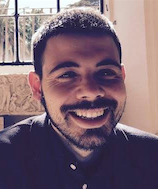
Manuel Galzerano studied Classics at the University of Pavia and the School for Advanced Studies of Pavia (IUSS). He obtained his PhD from Roma Tre University in 2017 with a dissertation on cosmic eschatology in Lucretius’ De rerum natura.
During his PhD research, he also worked as a high-school teacher of Latin and Greek literature. He is now based at Roma Tre University as temporary Research Fellow and investigates the role of quotations from Euripides in technical and philosophical treatises during the late-Hellenistic period.
His main research interests are Greek and Latin philosophical texts from Archaic Greece to Early Imperial Rome with a particular focus on cosmology and eschatology in epic-didactic poems, especially Lucretius’ De rerum natura. His publications include articles on Lucretius’ De rerum natura and the intersections between philosophy and literature in the Greek and Roman tradition.
Philip Hardie

Philip Hardie holds degrees from the universities of Oxford, London and Cambridge. He is currently a Senior Research Fellow at Trinity College, Cambridge, and Honorary Professor of Latin in the University of Cambridge.
He was formerly (2002-6) Corpus Christi Professor of the Latin Language and Literature, University of Oxford. He is a Fellow of the British Academy, a Member of the Academia Europaea, and an Honorary Fellow of the Australian Academy of the Humanities. He holds an honorary doctorate from the University of Thessaloniki, and was the recipient of the Premio Internazionale Virgilio (Mantova) in 2012. He is the Sather Professor at the University of California at Berkeley in 2015/16.
Philip Hardie is the author of Virgil's Aeneid: Cosmos and Imperium (1986); The Epic Successors of Virgil (1993); Virgil Aeneid 9 (Cambridge Greek and Latin Classics, 1994); Ovid's Poetics of Illusion (2002); Lucretian Receptions. History, The Sublime, Knowledge (2009); Rumour and Renown. Representations of Fama in Western Literature (2012); The Last Trojan Hero: A Cultural History of Virgil’s Aeneid (2014; Ovidio Metamorfosi vol. 6 Libri XIII-XV (2015). He is editor of The Cambridge Companion to Ovid (2002), co-editor (with Stuart Gillespie) of The Cambridge Companion to Lucretius (2007), and co-editor (with Patrick Cheney) of TheOxford History of Classical Reception in English Literature vol. 2: 1558-1660 (2015). He is also the author of numerous articles and essays on Latin poetry and its post-antique reception.
Stephen Harrison
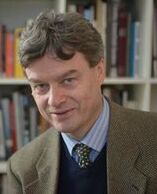
Stephen Harrison is Professor of Latin Literature at the University of Oxford and Fellow and Tutor in Classics at Corpus Christi College, Oxford.
His main research and teaching interests are in Latin literature and its reception.
He has edited, co-edited or co-authored more than twenty books on Virgil, Horace, the Roman Novel, Classics and literary theory, and Latin literature in general, as well as on the reception of classical literature. His most recent books are A Commentary on Apuleius Metamorphoses XI: The Isis-Book 2015 and a commentary on the second book of Horace's Odes, which is in press and to appear in 2016 (Cambridge Greek and Latin Classics series).
Stephen Harrison is currently involved in several major research projects: In addition to his new monograph on the reception of Horace in the Victorian period (Duckworth 2017) he is working on a study of the reception of Apuleius' Metamorphoses in European literature and art since Shakespeare (together with R. May). He is also co-editing conference volumes on the reception of Sappho at Rome, on ancient prose, on E.R. Dodds, on the weaker voice in Latin literature, on Performing Epic, and on Seamus Heaney and the Classics.
Johannes Haubold

Johannes Haubold is Professor of Greek at Durham University.
He studied Classics in Würzburg, Tübingen and Cambridge, where he obtained his PhD under the supervision of Simon Goldhill. After two years as Eugenie Strong Junior Research Fellow at Girton College, Cambridge (1999-2001), he moved to Durham, where he has been teaching ever since.
He is the author of numerous publications on Greek epic, and on contact and exchange between Greek and Mesopotamian literature and culture.
His latest monograph, entitled Greece and Mesopotamia: Dialogues in Literature (Cambridge 2013), won an American Publishers Award for Professional and Scholarly Excellence (category 'Classics and Ancient History').
His main areas of interest are Greek epic and its reception; and the place of Greek literature in a wider Mediterranean and Near Eastern context.
Nicola Hömke

Nicola Hömke studied Latin and Greek Philology at the Universities of Heidelberg and Oxford and graduated with the First State Examinationdegree at the University of Heidelberg. In 2001 she received her doctorate in Heidelberg with a dissertation entitled ‘In Case a Ghost Appears. Composition and Motifs of Ps.-Quintilian, Declamationes maiores X, XIV and XV’. From 2001 to 2011 she worked as Research Assistant at the Chair of Latin (Prof. Dr. Christiane Reitz) of the University of Rostock where she also completed her habilitation thesis ‘In the Death Zone. The Representation and Function of the Terrible, Gruesome and Horrific in Lucan’s Bellum Civile’; Berlin, 2016, forthcoming) in 2012.
From 2011 to 2013 she was employed as Research Assistant in the German Research Foundation-Project ‘The Rhetoric of Monotheism in the Roman Empire: Monotheistic Speech in Late Antique Poetry and Prose’, directed by Prof. Dr. Therese Fuhrer. Since then she has held the position of Acting Chair of Latin at the Freie Universität Berlin (Summer Semester 2013-Winter Semester 2014/15), at the LMU Munich (Summer Semester 2015) and most recently at the University of Osnabrück (Winter Semester 2015/16) and the University of Potsdam (since Summer Semester 2016).
Nicola Hömke's research focuses on the epics and short epics of the early imperial period, Roman rhetoric, Late Antique poetry and the conceptions of literary fantasy and the aesthetics of the ugly.
Markus Kersten
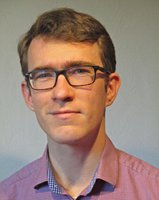
From 2006 until 2013 Markus Kersten studied Classical Languages and Literature and Mathematics at the universities of Rostock and Groningen.
In 2013, he started his DPhil course at Rostock. His thesis focuses on Lucan’s reception of Vergil’s Georgics in his civil war epic. From February until July 2015 he was based at the University of Oxford as a Visiting Scholar.
Markus Kersten's main research interests are compositional details like allusions and cryptogrammes.
His latest publications on epic poetry are "Ein Akrostichon im zweiten Buch De Bello Civili?, Lucan. 2,600-608", RhM 156 (2013), 161–171; "Cato und die Bienen. Zur Rezeption der vergilischen Georgica in einigen Gleichnissen Lucans", Act. Ant. Hung. 54 (2014), 37–54, and "Über Lucan, Vergil, Naivität und Sentiment. Anmerkungen zum Anti-Vergil", GFA 18 (2015), 239–256.
Astrid Khoo

Astrid Khoo (BA, King’s College London) is a graduate student in the Department of Classics at Harvard University.
Her recent and forthcoming publications include an article on “Wounds Prepared with Iron: Tattoos with Antiquity”, co-written with Martin Dinter, and chapters on University Statutes and Legality in the Thirteenth Century, as well as a study with the title “The ‘Jew’ as the Other in Word and Deed”, to be published in 2020. She is currently also working on a co-authored edition of De Rusticis Brasiliæ Rebus, an early modern Latin poem by José Rodrigues de Melo.
The Anthony Davis Book Collecting Prize (2017), Antiquarian Booksellers’ Association National Book Collecting Prize (2017) and Antiquarian Booksellers’ Association Bursary (2018) are among her recent awards.
Robert Kirstein

Robert Kirstein was educated at the University of Bonn, at Oxford University (Christ Church) and the University of Münster (DPhil).
He is a former Feodor-Lynen-Fellow of the Alexander von Humboldt-Stiftung.
His main research interests are Greek and Latin poetry, especially of the Hellenistic Age; the History of Classical Scholarship; in particular of the 19th and early 20th century; the Greek and Latin epigram; and, more recently, Ovid and narratology.
Robert Kirstein's latest publications include: „Entscheidung in (höchster) Not. List und Strategie in antiker Literatur“, in: A. Glatzmeier, H. Hilgert (edd.), Entscheidungen. Geistes- und sozialwissenschaftliche Beiträge zu Theorie und Praxis, 2015, 91-113; „Further Languages bei Ovid. Fiktive Mehrsprachigkeit und Fiktionalität“, in: A. Gil, R. Kirstein (edd.), Wissenstransfer und Translation, 2015, 31-58; „Der sehende Drache. Raumnarratologische Überlegungen zu Ovids Metamorphosen“, in: C. Kugelmeier (ed.), Translatio humanitatis. Festschrift zum 60. Geburtstag von Peter Riemer, 2015, 209-238.
Adam Kozak
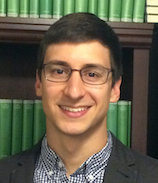
Adam Kozak is a Ph.D. candidate in the Department of the Classics at the University of Illinois, Urbana-Champaign, USA.
His research interests include Latin imperial epic, natural history and philosophy, didactic poetry, and ecocriticism.
He is writing his dissertation on the role of nonhuman nature in Flavian epic.
Joy Littlewood

Joy Littlewood is an independent scholar based in Oxford.
Her early work focuses on the depiction of humour in Roman elegy and literary aspects of Ovid’s Fasti. Her interest in Roman religion led to a commentary on Ovid, Fasti 6 (Oxford University Press, 2006).
Since then Joy Littlewood has worked exclusively on Flavian epic. She has written two commentaries for Oxford University Press (OUP) on Silius Italicus’ Punica 7 (Oxford 2011) and Punica 10 (in press and to appear 2016).
Joy Littlewood's new research projects include a commentary on Book 3 of Silius Italicus' Punica together with Antony Augoustakis with whom she is also co-editing a new volume of conference proceedings (forthcoming) for the Flavian Epic Network conference on the topic of ‘Flavian Campania'. She has recently undertaken to complete the fourth and final volume of Jim McKeown’s monumental commentary on Ovid’s Amores.
Helen Lovatt
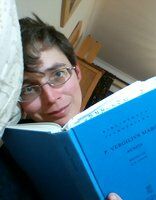
Helen Lovatt is Associate Professor of Classics at the University of Nottingham.
She studied Classics at Pembroke College, Cambridge, where she wrote her PhD on the athletic games in Statius Thebaid 6, under the supervision of John Henderson. After a temporary lectureship at Keele University, she held a Junior Research Fellowship at Murray Edwards College, Cambridge (then New Hall). In 2003 she joined the department of Classics at the University of Nottingham.
Helen Lovatt has published two books on epic poetry (Statius and Epic Games, Cambridge 2005 and The Epic Gaze, Cambridge 2013) and an edited volume on vision and epic (Epic Visions, Cambridge 2013).
She is currently working on children's literature and classics, the Argonaut myth, trauma and grief in Virgil’s Aeneid and Flavian epic.
Heinz-Günther Nesselrath
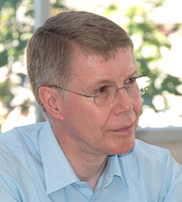
Heinz-Günther Nesselrath studied Classical Philology and Ancient History at the University of Cologne, where he got his Ph.D. in 1981 and habilitated in 1987. Since 2001 he has been Full Professor of Classics at Georg August University, Göttingen.
His main fields of research are Greek Comedy, Greek Historiography and Greek literature of Roman Imperial Times and late Antiquity.
He currently works on a bilingual edition of the church historian Socrates of Constantinople and a new critical edition (for OCT) of Lucian of Samosata.
Jason Nethercut
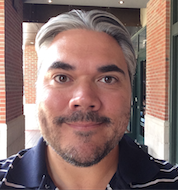
Jason Nethercut is Assistant Professor of Classics at the University of South Florida, USA.
His main research interests include Latin poetry, especially from the Republican period, epic and didactic, Greco-Roman tragedy, intellectual history, and classical reception.
He is the author of articles on Ennius, Lucretius, Vergil, and Ovid, and is currently working on two major research projects: a monograph on Lucretius and Ennius and another on the reception of Lucretius in imperial Latin literature. Jason Nethercut is also preparing articles on Republican Latin Epic, Tibullus, Senecan Tragedy, and the reception of Ennius in Imperial epic.
Hans-Peter Nill

Hans-Peter Nill studied Latin Philology and History at the Eberhard Karls University of Tübingen. He completed his First State Examination Degree for grammar and comprehensive schools in 2012.
In 2013, he started to work on his doctoral project entitled „Gewalt/Unmaking in Lucans Bellum Civile“ and submitted his thesis in 2016. From 2014 until 2016 he received a scholarship from the Landesgraduiertenförderung Baden-Württemberg.
Hans-Peter Nill’s main research interests are Lucan, representations of violence in Latin epic, narratology, and postmodernism. He is the author of “Friedrich Hölderlins Lucan-Übersetzung aus raumnarratologischer Perspektive”, in: A. Gil, R. Kirstein (edd.), Wissenstransfer und Translation, 2015, 164-192.
Christian Peters
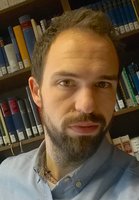
Christian Peters received his M.Ed. in Latin Philology and Ancient History from the University of Münster in 2010 and has since been a Research Associate at the Seminar für Lateinische Philologie des Mittelalters und der Neuzeit and the Cluster of Excellence “Religion and Politics” at the University of Münster. In November 2017, he started working as teacher trainee in Dortmund.
His research interests include political and ideological functions of literature, and the reception and transformation of classical mythology in Neo-Latin literature and Neo-Latin epic poetry.
Christian Peters’ Ph.D. thesis (2014) was published in 2016 ("Mythologie und Politik. Die panegyrische Funktionalisierung der paganen Götter im lateinischen Epos des 15. Jahrhunderts"). He is also the author of „Iustas in iras? Perspectives on Anger as a Driving Force in Neo-Latin Epic“, in: K. Enenkel and A. Traninger (eds.). Discourses of Anger in the Early Modern Period (Intersections 40), Leiden 2015, 261-287; „Mythologie und Politik im neulateinischen Epos“, in: A. Steiner-Weber and K. Enenkel (eds.), Acta Conventus Neo-Latini Monasteriensis, Leiden 2015, 408-419 as well as "verbis phucare tyrannos? - Selbstanspruch und Leistungsspektren von zeithistorischer Epik als panegyrischem Medium im 15. Jahrhundert", in: P. Baker et al. (edd.), Portraying the Prince in the Renaissance. The Humanist Depiction of Rulers in Historiographical and Biographical Texts (Transformation der Antike 44), Berlin 2016, 415-442. He is currently working on a monograph on mirrors of princes in Jesuit emblematics.
Christiane Reitz

Christiane Reitz studied Classics and Comparative Linguistics at the universities of Bonn and Heidelberg. After working as Assistant Professor and Lecturer at the University of Mannheim as well as Deputy Chair at the universities of Gießen and Heidelberg, Christiane Reitz became Chair of Classics at the University of Rostock in 2000, where she was active until 2019. She has continuously worked on epic poetry and its individual structural components.
Besides Roman and Greek epic poetry her main research interests are reception and transmission history of ancient literature, as well as authors of specialist literature. She is one of the editors of the series "Litora Classica" (VML-Verlag) and "Hypomnemata" (Vandenhoeck und Ruprecht) and has initiated and edited several companions on epic poetry.
From 2009 until 2018 Christiane Reitz has been a member of the Selection Committee of the Alexander von Humboldt Foundation, from 2007 until 2009 she was Chair and from 2009 until 2011 Vice Chair of the Mommsen-Gesellschaft and from 2014 until 2019 she has been Vice President of the FIEC.
François Ripoll

François Ripoll is Professor of Latin Language and Literature at the University of Toulouse-Jean Jaurès (France).
His main area of research is Flavian epic, on which he has published several articles as well as two books: La morale héroïque dans les épopées latines d'époque flavienne (1998) and a commentary on the Achilleid of Statius (with J. Soubiran, 2008).
François Ripoll has also written articles on Vergil, Lucan, Q. Curtius, Martial, Petronius and the Younger Pliny. His latest publications include "Peut-on considérer la Pharsale comme une 'épopée tragique'?", in: V. Berlincourt, L. Galli Milić, and D. P. Nelis (eds.), Lucan and Claudian: Context and Intertext (Bibliothek der klassischen Altertumswissenschaften), Heidelberg 2016, 61-76; "La mutilation oculaire: un thème guerrier de l'épopée antique de Lucain aux épiques flaviens", in: F. Galtier and R. Poignault (edd.) Présence de Lucain (forthcoming); and "Ulysses as an inter (and meta-) textual hero in the Achilleid of Statius", in: N. Coffee, C. Forstall, L. Galli Milic and D. Nelis (edd.), Intertextuality in Flavian Epic (forthcoming).
Paul Roche

Paul Roche (PhD University of Otago) is senior lecturer in Latin at the University of Sydney.
His research concentrates on the intersection of Roman politics and Latin literature in the first century AD.
He is the author of “Lucan’s Shooting Stars (1.536): per vacuum noctis tempus“, Mnemosyne 61.1 (2008): 140-1; Lucan,De Bello Civili, Book 1 (Oxford 2009), “Lucan’s De Bello Civili in the Thebaid“, in: W. J. Dominik, C.E. Newlands, K. Gervais (eds.). Brill’s Companion to Statius. Leiden 2015: 393-47; “Author and Authority in the Prefaces of Pliny the Elder’s Natural History and Quintilian’s Institutio Oratoria“, in: A. Zissos (ed., 2016), A Companion to the Flavian Age of Imperial Rome. Chichester: 434-449; the editor of Pliny’s Praise: the Panegyricus in the Roman World (Cambridge 2011), and co-editor (with W. J. Dominik and J. G. Garthwaite) of Writing Politics in Imperial Rome (Leiden: Brill 2009).
Paul Roche is currently preparing Lucan, De Bello Civili VII, for the series 'Cambridge Greek and Latin Classics', and editing a volume of essays on Lucan.
Matteo Romanello
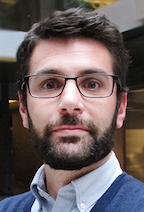
Matteo Romanello is a Digital Humanities specialist with particular experience and expertise in the areas of (digital) classics and archaeology. He received his PhD from King's College London in 2015 under the supervision of Prof. Willard McCarty with a thesis entitled From Index Locorum to Citation Network: an Approach to the Automatic Extraction of Canonical References and its Applications to the Study of Classical Texts.
Matteo is currently post-doctoral research fellow at the Ecole Polytechnique Fédérale de Lausanne (EPFL) where he works on the Swiss National Science Foundation projects Linked Books and Impresso (from January 2018). He recently edited, together with Gabriel Bodard, an open access volume entitled Digital Classics Outside the Echo-Chamber (Ubiquity Press, 2016).
In the context of the Structures of Epic Poetry project he is working on a digital publication that will complement the printed compendium.
Florian Schaffenrath
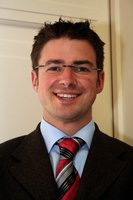
Florian Schaffenrath completed his studies of Latin and Greek at the universities of Heidelberg, Innsbruck, and Siena with a master’s thesis on Cornutus' Theologia Graecorum. His doctoral thesis focused on Ubertino Carrara’s Columbus (Rome 1715), an epic poem in 12 books about the first voyage of Christopher Columbus to the New World.
In the field of Neo-Latin studies, Florian Schaffenrath’s research focuses on epic poetry: Shorter articles deal inter alia with Petrarch’s Africa and Sannazaro’s De partu Virginis. As a member of the research group “Geschichte der lateinischen Literatur in Tirol” (published in 2012), Florian Schaffenrath is also interested in writing regional history of Neo-Latin literature. He has edited several texts and published numerous articles on the subject of the Tirol.
Florian Schaffenrath is a member of the “International Association of Neo-Latin Studies” (IANLS) and of “Die Neulateinische Gesellschaft” (DNG). At the Ludwig Boltzmann Institut (LBI) for Neo-Latin Studies he was Key Researcher in the politics series, before he went to Freiburg University with a fellowship from the Alexander-von-Humboldt-Foundation. In August 2014 he finished his habilitation treatise about Cicero's Philippics and became Associate Professor for Classics at the University of Innsbruck. In September 2014 Florian Schaffenrath succeeded Stefan Tilg as director of the LBI for Neolatin Studies.
Elisabeth Schedel

Elisabeth Schedel studied Classics and English Philology at the Universities of Tübingen and Durham (UK).
She completed her First State Examination degree for grammar and comprehensive schools in 2015.
In 2016, Elisabeth Schedel started to work on her doctoral project entitled “Ambiguities of War. Studies in the Narrativity of Silius Italicus’ Punica”.
During her postgraduate studies Schedel also works as Research Assistant at the Research Training Group 1808 "Ambiguity – Production and Perception" in Tübingen. In February 2017, she took over the office of Vice Speaker for this group.
Elisabeth Schedel's main research interests are Silius Italicus, ancient epic poetry, narratology, and in particular the phenomenon of ambiguity in ancient literature.
Cédric Scheidegger

Cédric Scheidegger is a Research Assistant at the Department of Latin Philology at the University of Basel. He studied Classics and Modern German Literature at the universities of Basel and St Andrews from 2004 until 2009.
From 2010 until 2014 he worked for the Swiss National Science Foundation (SNF) project “Das corpus Ovidianum. Werkpolitik in augusteischer Zeit“. He received his doctorate for the thesis Ille ego. Werkpolitik in er antiken Literatur at the University of Basel in 2015.
From 2015 until 2017 Cédric Scheidegger is based at the Faculty of Classics at the University of Cambridge where he works on a new research project entitled A new Commentary on Cicero’s Post Reditum Speeches I: De domo sua.
Claudia Schindler

Claudia Schindler studied Classics (Latin, Greek, Archaeology) at the universities of Münster and Munich. She completed her PhD at Münster in 1998 with a thesis entitled "Untersuchungen zu den Gleichnissen im römischen Lehrgedicht. Lucrez, Vergil, Manilius" (published in 2000). From 1998 to 2005 she held a position as Senior Lecturer at the University of Tübingen where she also submitted her habilitation treatise in 2005 ("Per carmina laudes. Untersuchungen zur spätantiken Verspanegyrik von Claudian bis Coripp", Berlin – New York 2009).
From 2003 to 2004 she spent a year at the University of Salzburg on a Lise-Meitner-scholarship awarded by the Austrian Science Fund, Vienna. In 2006/2007 she worked for a research project of the German Research Foundation on humanistic lectures about Cicero’s speeches at the University of Leipzig.
Since February 2009 she has been Chair for Latin and Neo-Latin at the University of Hamburg. Her main research interests are Greco-Roman and Neo-Latin didactic poetry, late antique verse panegyric, epic poetry and neo-Latin poetics. In addition, she has published articles on Ovid, on Seneca tragicus, on the history of classical scholarship and on Neo-Latin supplements of classical poetry.
Clayton Schroer
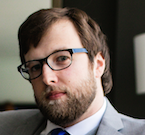
Clayton Schroer is a Ph.D. candidate in Classics at the University of Illinois, Urbana-Champaign, USA.
He is writing a dissertation on exile and displacement in Flavian epic.
His research interests include imperial Latin epic, Roman tragedy, exile, and postcolonial theory.
Christoph Schubert
Christoph Schubert was appointed Professor of Classics (Latin) at the University of Erlangen-Nuremberg in April 2017.
He studied Latin, French, Greek as well as Medieval and Neo-Latin at Erlangen, Paris and Jena. He received his PhD from the University of Erlangen in 1998 with a thesis on the portrayal of Nero in Latin poetry. From 1998 until 2001 Chrisoph Schubert first worked as Postdoc at the University of Jena and from 2001 onwards as Assistant Professor at the University of Erlangen where he completed his habilitation treatise on Ambrosius’ De Noe in 2007. In 2010, he was appointed Professor of Classics (Latin) at the University of Wuppertal before returning to the University of Erlangen as Chair of Latin in April 2017.
Christoph Schubert’s research focuses on Latin poetry from the 1st century AD and Christian Latin literature from the 3rd and 4th century.
He is the main editor of the series Palingenesia. Monographien und Texte zur klassischen Altertumswissenschaft (since vol. 100) as well as co-editor of Prismata. Beiträge zur Altertumswissenschaft.
Alison Sharrock
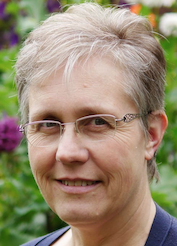
Alison Sharrock is Professor of Classics at the University of Manchester.
She studied Classics at the University of Liverpool and the University of Cambridge, where she wrote her PhD on Ovid's Ars Amatoria.
After 11 years teaching at the University of Keele in Staffordshire, UK, she joined the Department in Manchester in 2000. She has recently completed a stint as Head of Division of Archaeology, Religions and Theology, Classics and Ancient History.
Much of Sharrock's published work is on elegy, didactic, and comedy, with books on the Ars Amatoria (1994) and Roman comedy (2009).
Her current project is on Ovid's Metamorphoses. She has a strong interest in literary theory, including genre theory, feminism, inter- and intratextuality, reader response, and theories of authorship.
Claire Stocks

Claire Stocks is Assistant Professor for Classics at Radboud University, Nijmegen, the Netherlands.
Her research interests include Augustan and post-Augustan epic, especially Flavian epic.
She is the author of The Roman Hannibal: Remembering the Enemy in Silius Italicus’ Punica (Liverpool, 2014) and co-editor of Horace’s Epodes: Context, Intertexts, and Reception (Oxford, 2016).
Claire Stocks is currently working on a new monograph on the representation of Jupiter in Flavian Poetry and Culture as well as a co-edited volume (together with Antony Augoustakis and Emma Buckley) on Fides in Flavian Literature.
Jan Telg genannt Kortmann
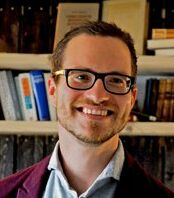
Jan Telg genannt Kortmann studied Latin Philology and History at the Westfälische Wilhelms-Universität Münster and completed his First State Examination degree for grammar and comprehensive schools in 2009.
From 2009 until 2010 he was employed as an Assistant Lecturer at the Department of Classics in Münster. Since then he has been working as Research Assistant for the Chair of Latin Studies (Prof. Dr. Christine Schmitz).
Jan Telg genannt Kortmann is currently finishing his dissertation, a commentary on the episode Hannibal ad portas of Silius Italicus’ Punica (Sil. 12.507–752). His paper on day and night as prominent starting and end points in the Punica is forthcoming and to appear in C. Schmitz, A. Jöne, and J. Telg genannt Kortmann (eds.), Anfänge und Enden: Narrative Potentiale des antiken und nachantiken Epos, Heidelberg. His main research interests are Latin epic, elegy, and historiography.
Wim Verbaal
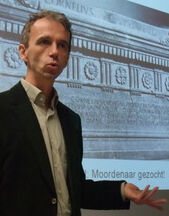
Wim Verbaal studied Biology at the Landbouwhogeschool Wageningen (NL) and Classical Philology at the University of Gent (Belgium), where he also received his PhD in 2000 with a thesis on the writing strategies of Bernard of Clairvaux (A Divine Tragedy. Triumph and Defeat in the Word by Bernard of Clairvaux). Since 2005 Wim Verbaal has been Professor of Latin Language and Literature at Ghent University.
Besides teaching at his home university, he lectures in Medieval Latin for the DEEM (FIDEM, Rome) and has been a Visiting Professor at several universities. He is also the President of the Henri Pirenne Institute of Medieval Studies (Ghent), President of the Ex-Alumni of the DEEM (FIDEM), an Associate of the Center of Medieval Literatures (Odense-York) and the online journal Interfaces, and a member of the scientific and editorial committees of Corpus Christianorum, Sacris Erudiri, and Toronto Medieval Texts. His research focuses on the vast literature of the 12th century, the writings and spirituality of and around Bernard of Clairvaux and Peter Abelard, as well as Latin poetics after Antiquity. He is currently working on a new monograph on the Loire poetics.
Berenice Verhelst
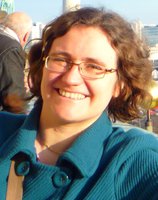
Berenice Verhelst studied classics and obtained her doctorate in 2014 (University of Ghent, Belgium) with a dissertation on Nonnus’ Dionysiaca, focussing on the narrative function of speech and the influence of the rhetorical tradition. Currently, she holds a post-doctoral fellowship of the Research Foundation Flanders (FWO). The title of her research project “Reinventing epic poetry. Creativity and tradition in late antique epyllia” reflects her main research interests, namely late antique poetry and the epic tradition at large. Her approach is informed by narratological theory and genre studies.
Berenice Verhelst is currently involved in several international research projects: She contributed to the Brill’s Companion to Nonnus (in press, to appear in April 2016, ed. D. Accorinti), is part of the team of translators working on the new English translation of Nonnus’ Dionysiaca (University of California Press, PI: Tim Whitmarsh) and coordinates (together with Tine Scheijnen) a collaborative book project (“Walking the Wire. Greek and Latin Late Antique Poetry in Dialogue”). She has also published on Nonnus (several articles) and Musaeus (a Dutch translation with introduction).
Anke Walter

Anke Walter is Lecturer of Classics at Newcastle University. From 2011 to 2017, she was Assistant Professor at the University of Rostock, where she worked on a research project (habilitation treatise) entitled ‘Ever since then‘ – Time in Ancient Stories of Origin. Her PhD thesis on Storytelling in Flavian Epic (2011) was published as Erzählen und Gesang im flavischen Epos in 2014 (De Gruyter, Berlin).
Anke Walter is the co-editor (together with Christiane Reitz) of the volume Von Ursachen sprechen. Eine aitiologische Spurensuche / Telling origins. On the lookout for aetiology (2014) and has published several articles on ancient epic poetry, especially Flavian epic.
From April 2015 to March 2016 she spent a year as Visiting Fellow at the University of Virginia, funded by the Alexander von Humboldt-Foundation.
Otta Wenskus
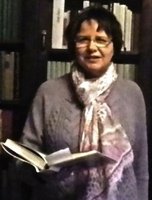
Otta Wenskus is Professor at the Institute for Languages and Literature (Greek and Latin Philology) at the University of Innsbruck.
Her main research interests are the history of science, contact linguistics, gender studies, and the reception of classical literature in fantasy and science fiction (especially Star Trek).
Otta Wenskus' publications include Astronomische Zeitangaben von Homer bis Theophrast. Hermes Einzelschriften 55. Stuttgart 1990; “DARMOK. Gilgamesch und Homer in Star Trek: The Next Generation“, in: R. Rollinger / B. Truschnegg (eds., 2006) Altertum und Mittelmeerraum: Die antike Welt diesseits und jenseits der Levante. Stuttgart: 789-806; “Sharon Creech, Absolutely Normal Chaos: ein Fall gelungener Homerrezeption“, in: M. Korenjak / S. Tilg (eds., 2007). Pontes IV. Die Antike in der Alltagskultur der Gegenwart. Innsbruck: 61-70; and “Die Siebzehn als kritische Zahl“, in: F. Schaffenrath (ed., 2008). Silius Italicus. Akten der Innsbrucker Tagung vom 19.-21. Juni 2008. Frankfurt a.M.: 97-98.
Katharina Wesselmann

Katharina Wesselmann studied Classical Languages and Literature and History of Art at the universities of Tübingen, Cologne and Basel. From 2004 until 2009 she taught Greek philology at Basel University and completed her PhD thesis on Mythical Structures in Herodotus’ Histories in 2010.
Since then, she has been working on a commentary of Iliad 7 within the project of the new Basel-Iliad-Commentary (SNF-Project). Since 2015, she has also been teaching Didactics of Ancient Languages at the Fachhochschule Nordwestschweiz in Basel.
In her research Katharina Wesselmann focuses on Historiography, Epic, narrative topoi, mythical and ritual elements in narrative, and Didactics of Ancient Languages.
Anja Wolkenhauer
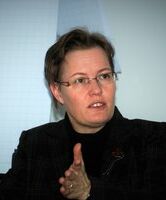
Anja Wolkenhauer was educated at the universities of Hamburg and Florence where she studied Classics, Art History, and History of Sciences after having gained several years of work experience as an antiquarian bookseller.
In her doctoral dissertation, „Zu schwer für Apoll. Die Antike in humanistischen Druckerzeichen des 16. Jahrhunderts” she offered a new basis for exploring early modern advertising strategies. Her second book “Sonne und Mond, Kalender und Uhr“, (2009) scrutinized the mental history of timekeeping in Rome.
In 2010 Anja Wolkenhauer was appointed Chair of Latin Philology at the Eberhard-Karls-Universität Tübingen. She is one of the directors of the postgraduate programme “’Other’ Aesthetics - Aesthetic Figures of Reflection in the Pre-modern Age” and one of the editors of Spudasmata and the Wolfenbütteler-Renaissance-Mitteilungen. In 2015 she was also elected Chair of the “Arbeitskreis Renaissanceforschung” at the HAB Wolfenbüttel.
Andrew Zissos

Andrew Zissos (PhD Princeton University, 1997) is Associate Professor and Chair of the Classics School of Humanities at the University of Irvine.
His main research interests are Latin epic, imperial Roman culture, and classical reception.
Andrew Zissos is the author of "Allusion and Narrative Possibility in the Argonautica of Valerius Flaccus", CPh 94 (1999): 289-301; "Terminal Middle: the Argonautica of Valerius Flaccus“, in: S. Kyriakidis (ed., 2004). The Middle in Latin Poetry, Bari: 311-44; Valerius Flaccus. Argonautica 1. Edited with Introduction, Text, Translation and Commentary. Oxford 2008; "Navigating Power: the Argonautica of Valerius Flaccus", in: W. Dominik / J. Garthwaite / P. H. Roche (eds. 2009). Writing Politics in Imperial Rome, Leiden: 351-66; and the editor of A Companion to the Flavian Age of Imperial Rome. Chichester 2016.
Simon Zuenelli
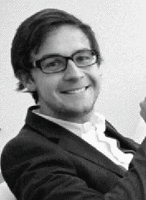
Simon Zuenelli studied Classical Languages and Literature at Innsbruck University, where he also wrote his dissertation, a literary commentary on Book 12 of the Dionysiaca of Nonnus of Panopolis in 2014.
From 2009 to 2014 he held the position of Research Assistantat Innsbruck University before he was appointed Senior Scientist in 2014.
Simon Zuenelli is responsible for the Anzeiger für die Altertumswissenschaft as general editor. He is also co-editor (together with Martin Korenjak) of Pontes VIII. Supplemente antiker Literatur (Freiburg 2016).
His main research interests include the Imperial and Late Ancient Greek epic (especially Nonnus of Panopolis) and literary paratexts. In his next project Simon Zuenelli plans to investigate the subgenre of the ancient Greek book epigram (i.e. literary inscriptions on books).


